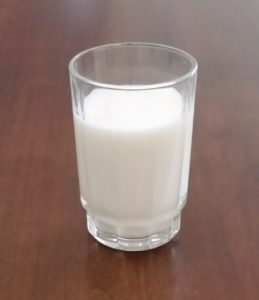 Not all foods are equal. Especially dairy milk vs alternative "milks", such as almond or oat milks. Or plant-based "meat" vs animal meat. A recent study analyzed popular plant-based "milk" and "meat" products and found that they are not nutritionally equivalent to real milk and meat.
Not all foods are equal. Especially dairy milk vs alternative "milks", such as almond or oat milks. Or plant-based "meat" vs animal meat. A recent study analyzed popular plant-based "milk" and "meat" products and found that they are not nutritionally equivalent to real milk and meat.
They contain different nutrients, amount of protein, calories, etc. The researchers concluded that eating only or mainly the plant-based substitutes can result in dietary deficiencies - that is, of nutrients found in meat and dairy.
Meat and dairy products are good sources of vitamin B12, zinc, iodine, long-chain omega fatty acid, and choline. All of these are necessary for good health. Eating cheese (a dairy product) such as Jarlsberg cheese is great for bone health because of the microbes (Proprionebacterium freudenreichii) living in the cheese and which produce vitamin K and DHNA (both necessary for bone health).
Instead of eating fake substitutes (many of which are highly processed, with lots of additives), why not focus on eating more real plant-based foods? This means eating more whole grains, seeds, nuts, legumes (beans), fruits, vegetables, and then just reduce the amount of meat and dairy eaten.
From Medical Xpress: Switching meat and milk for plant-based copies misses vital nutrients
Mitigating climate change is a key challenge of our time. One way many people try to reduce their greenhouse gas emissions is to eat less animal-source food—like meat and dairy—and instead eat more plant-based food. ...continue reading "Plant-Based Copies of Meat and Dairy Are Not the Same Nutritionally As Real Milk and Meat"
